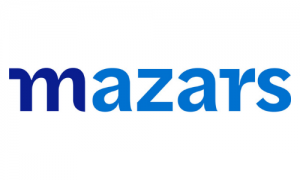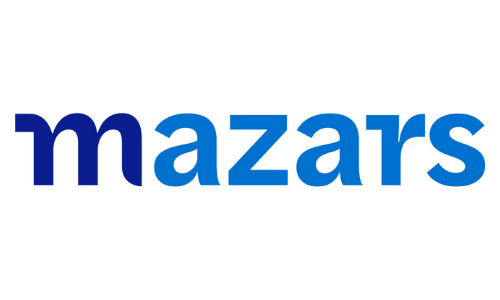Reshaping the luxury business model

- New customers and demand lead luxury brands to address sustainability and build cross-sector alliances
- Luxury customers increasingly expect sophisticated, long-term relationships with brands, access to integrated after-sales services, unique experiences and transparency - all made possible by digital technologies
- Affluent Chinese customers, HENRYs (High Earning Not Rich Yet) and Generation Z are driving the transformation and growth of luxury
Mazars, the international audit, tax and consulting firm, announces the launch of its new report Conscious, collaborative, connected: reshaping the luxury business model. The report, published in partnership with the project consortium Arianee, reveals how the luxury sector is adjusting to a new business model that allows customers to experience and relate to brands in new ways and to purchase products in the knowledge that they can be easily repaired and resold.
Conscious, collaborative, connected includes insights from a number of luxury sector leaders, including Breitling, Comité Colbert, Kering and Vacheron Constantin, and derives from an extensive desk review of more than 150 articles, reports and other sources.
Changing the world of luxury
The luxury business model is transforming in response to a changing world: in 2010 luxury customers spent €4.3 billion online; in 2019 that figure rose to €33.3 billion. China is currently the fastest-growing country in the luxury market. The global second-hand goods market has reached €30 billion annually, thanks to a average annual growth of 12% over the last five years.
According to the report, the new business model responds to the expectations of new customer groups, prioritizes luxury experiences, bets on partnerships and adopts circular practices in search of greater sustainability.
Customer cohorts
Luxury customers are getting younger and come predominantly from China. The country is the main growth market for luxury and is home to millions of wealthy customers eager to buy top-of-the-range products. China's luxury customers are one of three new groups identified in the report. These are: HENRYs (High-Earners-Not-Rich-Yet) [1]The growth of the luxury fashion market is driven by the new generation of consumers, located in China and other countries, Millennials and Generation Z - all driving the growth potential of the luxury fashion market. Each new group brings its own distinct opportunities and pressures for customer focus.
Boosting experiences and partnerships
Throughout a series of interviews presented in the report, luxury sector leaders point out that "customer service" has become at the forefront of the customer experience, especially the services that come after the initial sale of a product. One example is return and recycling programs for customers seeking sustainable consumption, including the pioneering program Renew by Eileen Fisher.
Partnerships have become vital to ensure greater transparency, circularity and sustainability. Fashion Pact is an example of successful collaboration: a global coalition that helps large luxury houses such as Burberry, Kering and Prada to collaborate with smaller brands by offering exchanges brand-to-brand. In doing so, they fulfill the promise of environmental sustainability that consumers want.
Some of these partnerships have been established with the aim of combating counterfeiting. It is estimated that fake luxury goods account for 60% to 70% of the €3.8 trillion in annual counterfeit trade flows. [2]
New luxury technology
Technological innovations help luxury brands update their models, including:
- Digital certification to guarantee the authenticity of products. Some of the leaders in this area include Arianee, which is currently working with Breitling on a unique digital passport, where the watchmaker offers watch owners a complete and continuous service from purchase to repair, resale or transfer - all based on blockchain.
- Offering live experiences such as shows, special sales, art previews and access to capsule collections - all linked to the use of customers' and their followers' social networks.
- New digital technologies, such as chatbots and radio-frequency identification (RFID) that aim to speed up and facilitate the customer experience.
Looking to the future: main challenges and opportunities
The report highlights the main challenges and opportunities for the luxury sector, including the impact of Covid-19. This includes how the pandemic has given the luxury resale market an extra boost to stimulate investment in new services. In North America and Europe, many young and upper-class customers have suffered a loss of purchasing power, and the resale market has become more attractive to these consumers.
All brands are expanding their digital presence: Hermès and Tiffany, for example, are adopting digital marketing tools such as the livestreamingwhich they had rejected in the past.
The report predicts a brighter long-term future for the players that take the customer's interest in sustainable consumption seriously. This starts with the circular economy and finding recycling solutions for luxury products. But it also means going further, developing new materials and production processes that don't harm the planet, and bringing supply chain partners on board the sustainability journey.
Isabelle Massa, Partner at Mazars, says: "Luxury brands have long been known for their ability to control the way their products are presented and sold. This report reveals how brands are reshaping their business models to match the new market reality. Alliances that enable brands to be more innovative and circular, and business practices that prioritize a younger and more diverse customer base are starting to become recurrent." He adds that "this report reveals the new approaches adopted by luxury brands: how they are expanding their digital presence to respond to the pandemic and readjusting their models to build sustainable businesses and respond to all their customers more effectively than ever."
Pierre-Nicolas Hurstel, CEO and co-founder of Arianee, says: "Our findings reveal how the luxury sector is undergoing a reform and why. The industry as a whole is evolving, culturally and organizationally, to respond to new and old challenges. Technology and partnerships are at the heart of this evolution: as luxury brands find new ways to offer experiences, services and circular opportunities such as resale, they can keep up with the demand of their increasingly young and globally-minded customers."
Methodology
This study is based on an extensive desk review of more than 150 articles, reports and other sources, and in-depth interviews with luxury sector leaders and experts conducted between May and September 2020. The report was created and published in partnership with Arianee.
About Mazars
Mazars is a leading international audit, tax and advisory firm that aspires to build the economic foundations of a prosperous and just world. Operating through an integrated partnership, Mazars works as a single team, able to leverage expertise, scale and cultural proximity to deliver exceptional, tailor-made services in audit and accounting, tax, financial advisory, consulting and legal services.[3].
With European origins, Mazars is present in more than 90 countries and territories and has 40,400 professionals - 24,400 in the UK. partnership and 16,000 via Mazars North America Alliance - dedicated to helping clients leverage business opportunities and act with confidence.
About Arianee
Founded in 2017, Arianee is an independent consortium whose mission is to create a global standard for the digital certification of valuables. The Arianee protocol makes it possible to associate a unique, non-counterfeit and augmented digital identity with any item of value. This digital "identity card" opens up a new channel for interaction between brands, owners and objects that is permanent, secure and anonymous. Based on blockchain technology, the solution implemented by Arianee is open-source and decentralized. Arianee offers the first SaaS certificate management platform and mobile wallet applications that leverage the Arianee Protocol.

